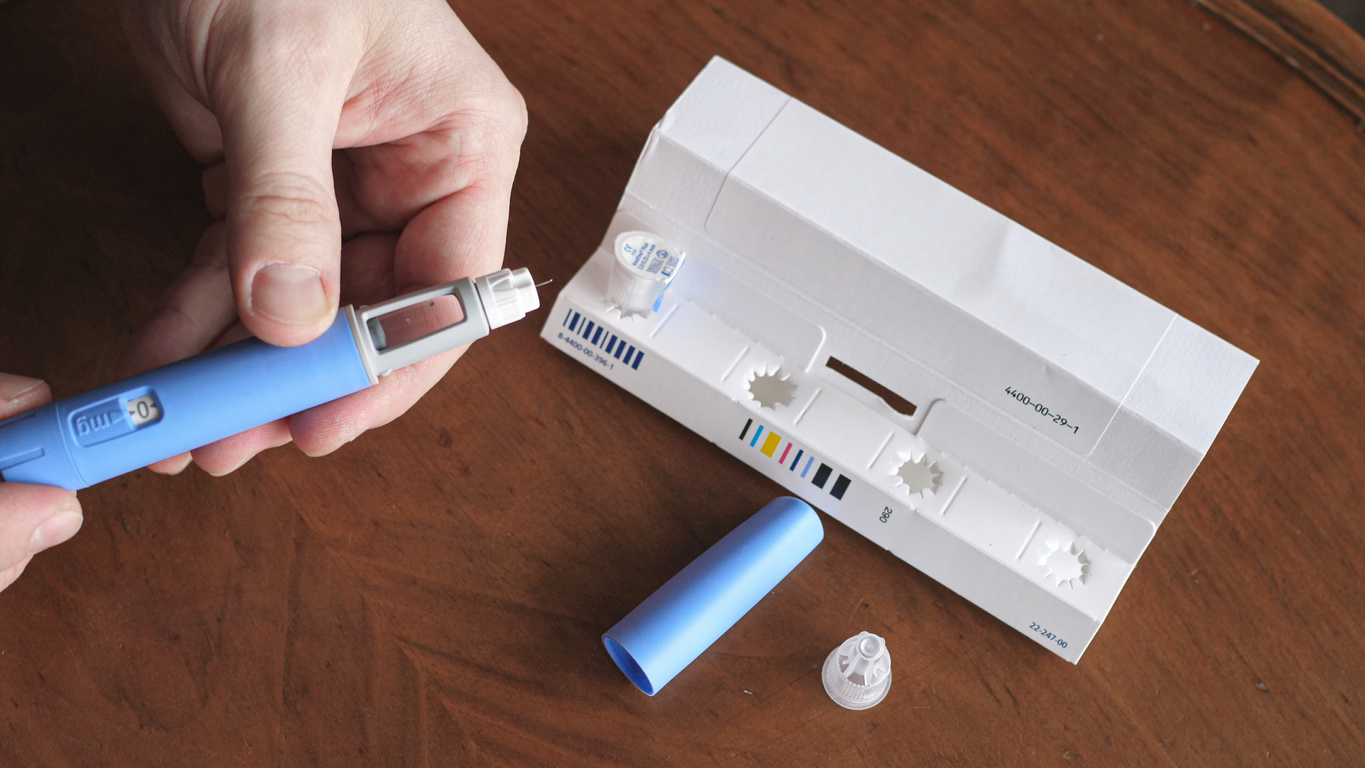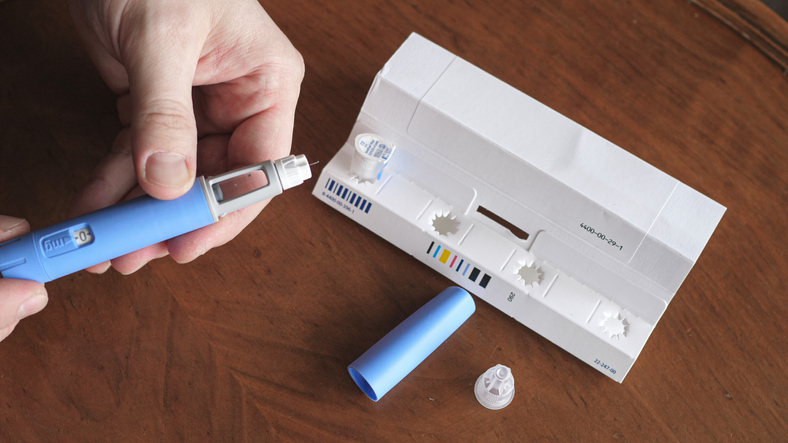Why Zepbound Could Be the New Ozempic

In the past few years, drugs such as Ozempic have become well-liked for how well they manage type 2 diabetes and help with weight loss. But now, Zepbound is coming on the scene as a possible alternative. It’s not very clear yet why we should consider Zepbound the next Ozempic, but this article does its best to explore and explain. So, what is Zepbound, and why might it be the drug of choice for some when it comes to managing blood sugar, weight, or both?
What Is Zepbound?
Zepbound is an injectable medication made by Eli Lilly. It is mainly approved as an antiobesity medication for adults who are either obese or very overweight and who have at least one condition connected with their excess weight, such as type 2 diabetes, high blood pressure, or high cholesterol. Zepbound is better than anything else at producing effective weight loss in clinical trials and it is different from other GLP-1 receptor agonists in part because it is a dual agonist—that is, it targets two different receptors (GIP and GLP-1) instead of just one.
These pathways help regulate blood sugar levels, Zepbound, brings dual action to obesity treatment: It acts on two different pathways to help people lose weight. It helps regulate blood sugar levels and reduces appetite. And it enhances the body’s insulin sensitivity. Insulin is the hormone that fat cells need to absorb blood sugar. When you have more insulin in your system, your blood sugar should go down. But in people with obesity, more than usual insulin doesn’t seem to work. We don’t know why. But Zepbound seems to cover these regulatory bases.
How Does Zepbound Differ from Ozempic?
Zepbound and Ozempic share the characteristic of being injectable medications that assist in weight loss and help maintain blood sugar levels. They differ in several critical ways:
How it Works
Semaglutide (Ozempic) is a GLP-1 receptor agonist and acts like the hormone it mimics, regulating the blood glucose. It does this primarily by increasing the secretion of insulin and reducing digestion. These actions lead to an appetite control which results, for many patients, in significant weight loss. They also, interestingly, seem to be much better at producing effects in “glucose metabolism.” In contrast, tirzepatide (Zepbound) is a dual-agonist that uses both GLP-1 and GIP pathways to do the same thing. It also helps with stimulating insulin production, but, again, the much greater effect it has is in appetite reduction.
FDA Approval
Ozempic is mainly used for type 2 diabetes treatment. However, it is also prescribed off-label for the management of obesity as well as weight at times. Its counterpart drug, Wegovy, is specifically approved to treat weight management in obese individuals as well as in individuals suffering from overweight disorders. Zepbound is indeed approved for weight loss; therefore, it is a special choice for individuals looking to lose extra pounds.
Effectiveness
Clinical trials show that Zepbound might produce a clearer reduction in weight compared to Ozempic. In a trial, the tirzepatide users lost 11.2% on average of their body weight. But the people who used semaglutide lost just 5.7% in weight. Because Zepbound is a dual agonist, it seems to act better on pathways that suppress appetite and pathways that confer metabolic benefits—essentially acting more effectively on obesity.

What Are the Potential Benefits of Zepbound?
There are several advantages to Zepbound:
Improved Weight Loss: Zepbound likely provides better weight loss results than medications that only target the GLP-1 pathway because of its dual-agonist mechanism. Data collected to date indicate that users of Zepbound can expect to lose, on average, about 20% of their body weight—a percentage significantly greater than what users of Ozempic typically experience. Zepbound thus has promise as an effective treatment for individuals with or at risk of developing weight-related diseases.
Enhanced Blood Glucose Control: Zepbound regulates blood glucose levels in patients with type 2 diabetes by activating both the GLP-1 and GIP receptors. This enhances blood sugar control.This enables better regulation of blood sugar levels. It is a dual-action mechanism which means it acts on two fronts compared to Ozempic, which is a single-action medication. So, you can consider Zepbound to be a step up from Ozempic in controlling blood sugar levels.
One of the major advantages of Zepbound is that it is highly effective at reducing the appetite of a person. Individuals have been found to feel much more full than they would have been under the medication when it was taken before food intake, and this helps them consume less calories. And the suppression of appetite seems to happen more intensively and persistently with this drug compared to other drugs of the same class because of how Zepbound works.
Are There Any Side Effects Associated with Zepbound?
Mild symptoms are almost always present when one first begins taking Zepbound, and they usually consist of mild to moderate “intensity.” They are expected to decrease in intensity and frequency over time and may do so because the patient is getting used to the medication and/or because the main condition the medicine is intended to treat is showing some improvement.
Some users have reported changes in libido, although individual experiences seem quite varied. Pancreatitis, gallbladder issues, or severe allergic reactions might occur in some cases. If they do, talking to a doctor in advance can help prevent the kind of problems that lead to writing sentences like this one. After talking it over with your doctor, you should have a solid understanding of the expected effects of Zepbound. You should also be in a good position to make the call on whether Zepbound should be part of your future. If you start to notice fatigue on Zepbound, contact your doctor.
How Does Zepbound Compare in Cost to Ozempic?
Cost is a crucial factor in the decision between Zepbound and Ozempic. The list price for a month’s supply of Ozempic is around $935.77. List price for a month’s supply of Zepbound is significantly higher, at approximately $1,059.87. Both of these prices are pretty steep for your average consumer, but they do have the potential to become much more affordable with the right combination of insurance, savings programs, and/or coupons. In such cases, either medication could cost as low as $25 a month.
As with any medication decision, you should consult your insurance provider first. After clarifying with them what they’ll cover and what your co-pay will be, you’re in a much better position to assess the actual cost of these medications. And be sure to ask about cost assistance programs or the price of zepbound with coupon that the manufacturers of these medications run; those can often result in significant savings.

Is Zepbound Right for You?
Establishing Zepbound as the appropriate medication requires looking at individual health conditions and goals. If the principal aim is weight loss, particularly in the context of weight-related health problems, then Zepbound may be a more suitable choice, given its specific approval for weight management and its distinctive dual-agonist mechanism. But before leaping right to Zepbound, you really should consult a healthcare provider to see if it is a good match for your weight loss medicine needs. Then you can factor in health history, current medications, and what’s going on in your life for a comprehensive picture of whether or not Zepbound shortage is right for you.
What Are the Alternatives to Zepbound?
Zepbound has promise, but other effective alternatives exist for weight loss and diabetes management: Ozempic: Effective for blood sugar control and moderate weight loss. It is less expensive and more readily available than Zepbound. Wegovy: Similar to Ozempic but approved only for weight loss.A larger amount of semaglutide causes an even greater and more consistent amount of weight loss. Mounjaro: Another tirzepatide formulation from Eli Lilly, Mounjaro is known for significant weight loss and excellent glucose control. Zepbound and this drug are very similar, but they differ in their dosing and usage instructions.
Conclusion
Zepbound is coming forward as a potential alternative to Ozempic. More than just another semaglutide, it likely provides better weight loss and glycemic control because it activates two receptors rather than one. The drug’s dual-agonist action lets it hit two targets: the GLP-1 receptor and the GIP receptor. That could give it quite an edge in improving weight loss and blood sugar control, in comparison to drugs that act on just one of these receptors.










